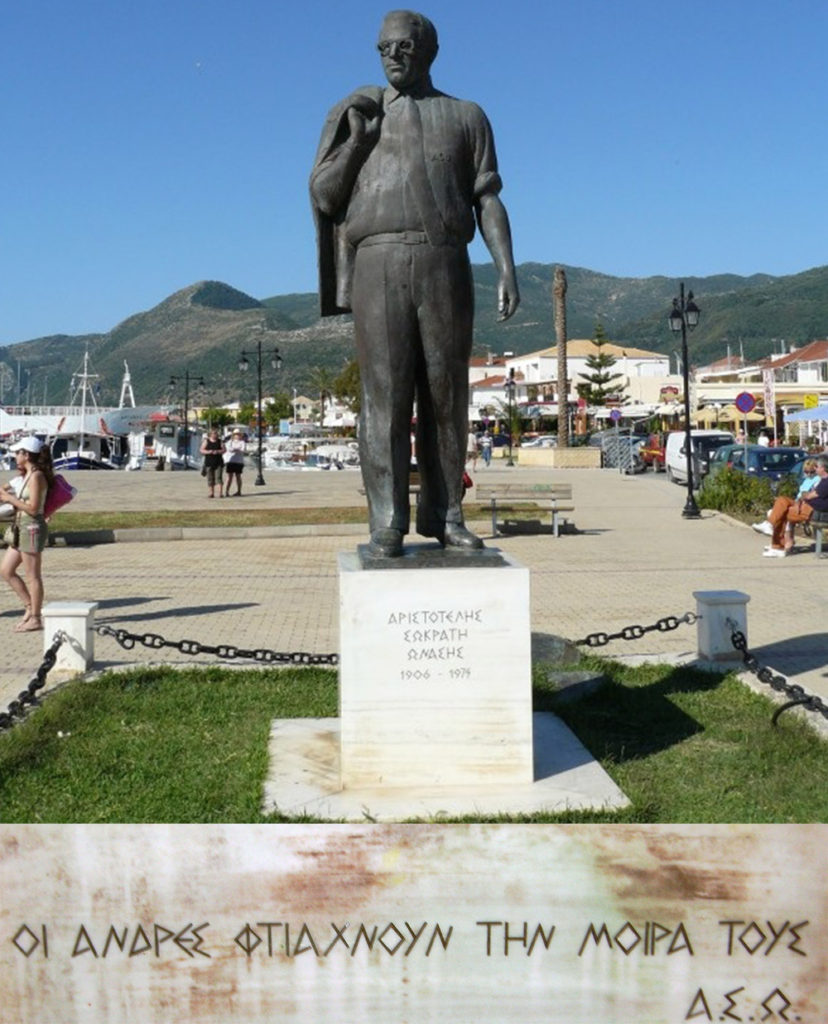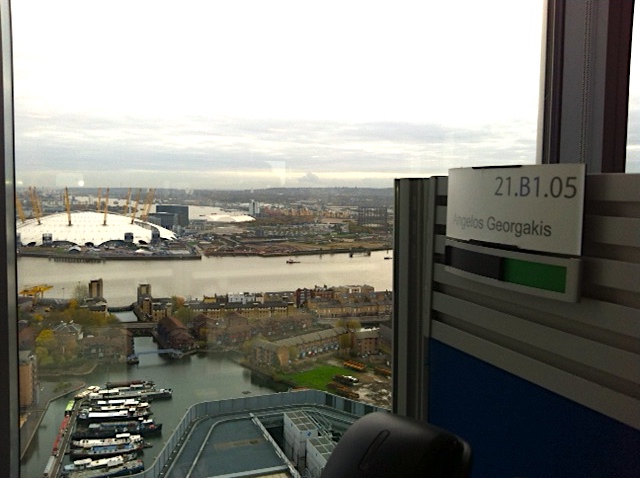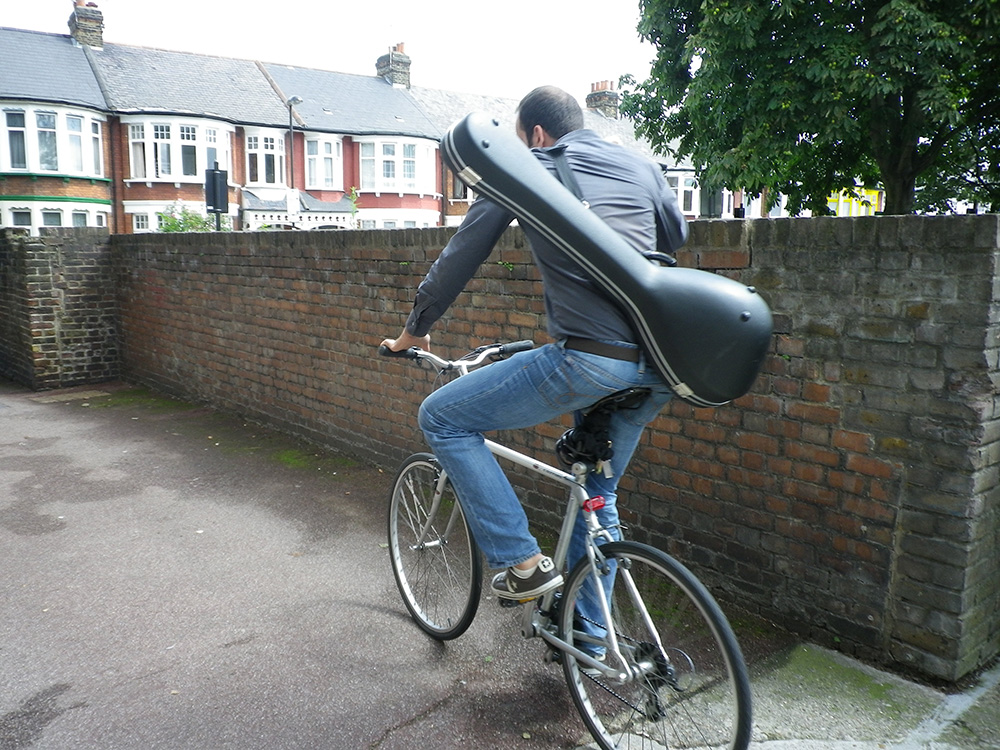This is my mental health story.
And a story about:
- My investment banking dream
- Anxiety, back pain and physical symptoms
- Repressed emotions
- Search for meaning
- Being me
This is also a story about letting go of one’s mental health story.
That’s confusing I know but I’ll explain to you.
Table of Contents
The Investment Banking Dream
I left Greece and moved to London in 2009.
When the whole world pointed the finger of blame at the banking industry, I had a dream: to become an investment banker and make a lot of money.
It wasn’t going to be easy.
I had zero work experience, no connections, and my English sounded all Greek to them.
However, after hundreds of unsuccessful applications, I managed to find a job.
Finally, someone believed in me and gave me a job.
I became… a Christmas tree seller!
It was a great job, although I didn’t appreciate it much at the time.
And because you can’t sell Christmas trees all year round, I did all sorts of jobs during my first year in London.
I worked as a musician, maths teacher, IT support engineer.

And I was still committed to getting into banking.
I had a picture of the Greek business magnate Aristotle Onassis on the wall of my 3 x 2 m² room in London.
“Men make their own destiny” reads the inscription under Onassis’ statue back in my homeland Lefkada, Greece.

I was reading Options, Futures and Other Derivatives and spending hours on eFinancialCareers and CityJobs.
I would call in sick in my IT support job every other week just to fail at another interview!
Fail, fail, fail, fail, fail…
Until the dream came true.
Investment banking, here I am!

A lot of learning, a fast-paced environment, a new world!
Finally, I replaced my Nokia phone for an iPhone.
And I got my mum an iPad.
Exciting times.
The first three years were exciting but slowly I realised that I had invested in the wrong dream.
My life was just work, work, work.
Time shrank.
Monday to Friday flashed in front of me. Whoooooosh!
That was probably the scariest feeling I ever experienced.
I wanted to explore what life had to offer other than banking but I had no idea what to do next.
And quitting often felt like suicide.
I was constantly frustrated.
Because of the long hours I didn’t have much time to explore new avenues.
I lacked clarity.
And every time I mentioned to my parents or friends that I was planning to quit, they thought I was crazy.
“Look what’s going on back in Greece”.
“You make in a day as much as someone makes in a month”.
“You haven’t got that far to blow everything up”.
“You can retire in 10 years”.
I would often go strong: “What do you mean? Waste the best years of my life to save for retirement?”
And sometimes I would question myself.
And there you go… more frustration and anger.
Hello, back pain, my old friend.
That was when severe back pain hit me.
I used to live a healthy life.
I swam every day for an hour with my Italian colleague Roberto in the Credit Suisse building in Canary Wharf.
And, believe it or not, I ended up incapacitated.
I was hardly able to walk.
Old people would walk faster than me.
It was not the first time I experienced back pain but it was the worst and lasted longer than ever before.
Doctors found a slipped disc and degenerative disc disease in my spine.
I tried everything: physiotherapy, massage, acupuncture, yoga, pilates, special diets, medication.
Nothing touched my pain.
One day the guys from the employee health and wellness department brought to my desk the most anatomically correct, ergonomic and expensive chair in the world.
They sent consultants to teach me how to sit. I’m laughing now but I was serious about my back, back then!
I took serious notes on how to sit properly.
The pain wouldn’t go away.
Back Pain and Repressed Emotions
Last option was surgery. Every surgeon was willing to fillet me for a few thousand pounds.
I was thinking of going with the NHS but the waiting list was long at the time.
In the end, I said no to surgery although I wanted to get my life back.
The reason was that I wasn’t convinced that surgery would fix my pain.
Doctors wouldn’t seem to agree on whether the slipped disc was the real cause of the pain.
One of the doctors said that his MRI looked worse than mine but he never experienced any pain.
Strange…
So I decided to do my own research.
I came across a book called Healing Back Pain by Dr. John Sarno and I started making the link between physical pain, anxiety and repressed emotions.
It took me months to believe that my excruciating back pain was caused by repressed emotions.
Initially, I thought… What’s all this BS?
How can emotions create this sort of debilitating pain?
Well, it turned out that they can.
One interviewer at Threadneedle Asset Management once asked me, “Do you get angry?”
I said, no. I’m a chilled guy and I manage my emotions.
He didn’t give me the job. And he did the right thing.
Because my anger was so huge: I repressed it for a long time before I became consciously aware of it.
I was often furious inside.
Why?
Because I had to demolish my dream: the investment banking dream.
I felt ungrateful when I was thinking of quitting banking when everyone said that I had a brilliant career.
I didn’t want to disappoint my parents, my girlfriend, my friends.
It was easier for me to repress my anger and suffer from back pain than to be called crazy!
This is how repression works.
When you deny your anger and other negative emotions, when you run away from them, that energy has to go somewhere.
For some people, it manifests itself as back pain, for others as heartburn, hiatus hernia, skin rashes, or other symptoms (on how to get rid of chronic pain).
Besides anger, I felt anxious, fearful, uncertain about the future.
I experienced panic attacks.
I will never forget the panic attack I had in the swimming pool shower. My heart pounded like crazy. My head felt ready to explode. I could feel my high blood pressure.
I still remember kneeling for 10 minutes, water falling on my head.
Roberto had already dressed and waited for me outside, “Man, what’s wrong with you? We’re late! I thought you’d stay in the shower forever!”.
Also, I had more panic attacks. A few times I visited the University College Hospital to check my heart.
I once called 999 from Canary Wharf because I thought I was having a heart attack.
I got really angry because the ambulance was taking so long. I was waiting and waiting… I saw some friends, I said hello! Then I called again and started shouting at the operator.
Until I thought… hold on a second, you’re saying hello to all these people, maybe you’re not having a heart attack? 🙂
Of course, it was not a heart attack. It was just anxiety.
A Few Lessons from my Mental Health Story
In the end, I left banking and went on a long journey until I found my passion for coaching.
The funny thing?
I’m still living in the world of banking because most of my clients are investment bankers.
And I help them feel fulfilled whether they decide to stay or quit.
Now I’d like to share four lessons from my mental health struggles.
Pain is a coping mechanism
Pain often comes to our lives to save us from our emotional suffering.
It’s a way to distract ourselves from addressing important yet difficult life decisions.
Research in neuroscience shows that emotional and physical pain use the same neural circuits.
Negative emotions are more than enough to cause pain in different areas of our body.
And it’s easier for people to complain about their physical symptoms such as back pain rather than their negative emotions and mental health struggles—a process called somatisation.
And that’s very common in high-status high-stress environments such as investment banking.
Pain can be a way to escape from asking for what we need, doing what we want to do, and becoming who we want to become.
It’s often easier to be in pain than to “disappoint” our parents, friends, or partners.
We often prefer to be in pain rather than live the true life that we are meant to live.
My chronic pain became a blessing
My physical and emotional pain helped me to become more self-aware, to understand how emotions work and get clarity as to how I wanted to live my life.
And that’s why I can now help others to become more self-aware and live their true lives in my coaching business.
The uncomfortable experiences, the setbacks, the suffering, the quest for meaning all became teachings and wisdom.
Your uncomfortable emotions are messengers—Don’t kill them!
Your emotions or physical symptoms are messengers.
When you take a pill, you kill the messenger.
Anxiety showed me that I was not sitting in the driver’s seat when I was in investment banking.
It was a force that made me jump on the boat and sail away.
When you fight your feelings, you fail to understand yourself, your values, and what you truly care most about in life.
There is information in your anxiety and all your discomfort.
Always ask, “What is that I am feeling and what is trying to communicate to me?”
It’s a message from your unconscious mind.
What is it? Explore it with curiosity and wonder.
A chronic mental condition often comes with benefits.
It may sound weird—but it does.
You may unconsciously—and I’m repeating: unconsciously—use your mental health story in order to receive love from others.
Mental suffering often gives you the attention, sympathy, and love of others.
That’s why there are so many online groups and communities where chronic pain sufferers hang out and spend hours every day.
Being part of a community satisfies one’s emotional needs.
The need for belonging, acceptance and love.
And that’s okay and I totally respect that.
But is chronic pain the only path to belonging and love that every human being deserves?
Of course not. There are more empowering routes.
Your mental health story can often become an identity.
That’s why it’s often difficult to let go of it.
It can be scary to leave all those mental health groups, to stop talking about your pain and symptoms, to go back to living a normal life when you’ve built a life around your mental health story.
Will I be OK if I go back to living a normal life?
Your mental health story can become an adaptation.
From an evolutionary perspective, human beings have managed to survive because they can adapt easily.
But mind that you can adapt in many different ways.
The question is… Who do you want to be?
Do you want to be your mental health story?
Do you want to receive love from talking about your mental health struggles with the world or talking about hiking, reading, an entrepreneurial project or anything else that brings you to life?
When someone comes down with an infection or a cold, they don’t call themselves “the person who came down with a cold”.
Why would you call yourself “the person who became anxious, depressed or the person who suffered from back pain?”
You can let go of your story and move on.
There is a wonderful world out there and others ways to get love, fulfilment and anything else your soul desires.
You are more than your mental health story.
Loving you, Angelos
